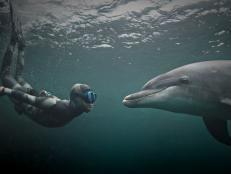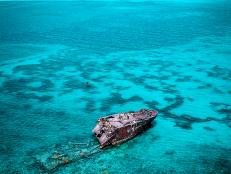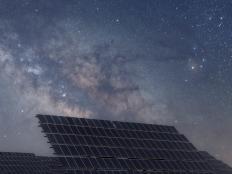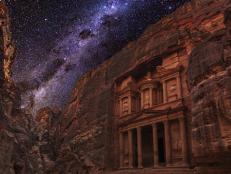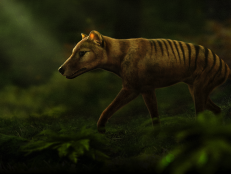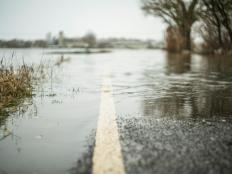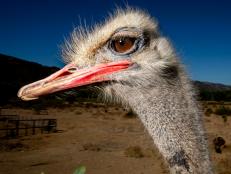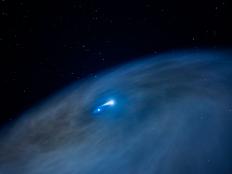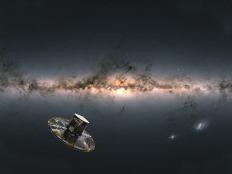Articles
Showing 151 - 165 of 2,628 results
Can this New AI Technology Help Us Understand the Languages of Animals?
A California-based nonprofit is searching to build an AI language that allows humans more deeply understand non-human languages to help change our ecological impact on our Earth.
A Spanish Sunken Galleon Has a $17B Bounty Onboard - and Now You Can See It
Way back in 1708, when the War of Spanish Succession was waging across Europe and Latin America to decide who should be the next King of Spain, three Spanish galleons set sail from Panama. They were loaded to the brim with gold, silver, emeralds, and other jewels that had been extracted from the mines of Bolivia – and were vital in financing Spain’s costly war against its enemies.
Curiosity Daily Podcast: AI vs. Parkinson’s, Dark Sun Power, Death Proof Jellyfish
Ever wonder about the artificial intelligence helping us find and fight Parkinson’s disease? What about the new methods for collecting energy from solar panels at night or how the tiny immortal jellyfish may help us massively extend our lifespans. Tune in to learn more!
Mt. Shasta, California’s Mysterious Volcano, is an Enigma Waiting to be Explored
At the northernmost tip of California lies the southern end of the dramatic Cascade mountain range. And the crowning glory of the range, which ripples down through British Columbia, Washington, and Oregon, before it comes to a stunning crescendo at Mount Shasta.
Microplastics in Blood Spotlight Health Emergency from Plastic Pollution
Plastic pollution is growing rapidly across Earth’s ecosystems and its threat to humanity and wildlife is too. Outcomes for health and the environment will be dire unless we tackle it, says a United Nations (UN) report. But the discovery of microplastics in human blood means urgent action is needed.
Baby Bear Takes a Trip on Hallucinogenic ‘Mad Honey’
A bear cub was rescued in Turkey after passing out from eating too much hallucinogenic honey.
A Majestic City Carved into Rock, Thousands of Years Ago
Carved into soft stone cliffs, the ancient sandstone city of Petra was built in the 3rd century BC by the Nabataeans. These people were a nomadic Arab tribe–Bedouins–who roamed the Arabian Desert in search of pasture and water for their herds.
Scientists Are Resurrecting the Tasmanian Tiger from Extinction
Colossal Biosciences has announced it has begun work on the de-extinction of the thylacine, an iconic Australian marsupial eradicated by human hunting in 1936. Learn how they plan to do it in an exclusive interview with marsupial evolutionary biologist Andrew Pask Ph.D. and Colossal Co-Founder Ben Lamm.
All Rainwater is Unsafe to Drink According to Study
A study by Stockholm University and ETH Zurich scientists found that all rainwater on Earth is unsafe to drink due to the levels of PFAS, or toxic chemicals. These PFAS or ‘forever chemicals’ are becoming a part of a future reality that humans must, unfortunately, learn to live with.
Greetings from Ostrichland!
As a nature photographer, greeting card images are a major part of my business, but finding a card that catches the eye can be challenging. With tens of millions of options in the marketplace, your images need to be a unique subject matter, with vibrant colors. Also, quirky helps!
Why Astronomers Care About Super-Old Galaxies?
A long time ago, our universe was dark.It was just 380,000 years after the big bang. Up until that age, our entire observable cosmos was less than a millionth of its present size. All the material in the universe was compressed into that tiny volume, forcing it to heat up and become a plasma. But as the universe expanded and cooled, eventually the plasma changed into a neutral gas as the first atoms formed.
Shark Week: The Podcast – Forrest Galante on Walking Epaulette Sharks and Great Whites which can Change Color
Luke Tipple is joined by biologist & star of Discovery’s Shark Week Special Island of the Walking Sharks, Forrest Galante, to discuss remarkable walking epaulette sharks in Papua New Guinea.
Scientists Watch as Stars Quake
The European Space Agency’s Gaia spacecraft has managed to watch stars tremble, their light subtly changing as starquakes ripple through their surfaces. Which is pretty cool, because Gaia wasn’t even designed to do it.
Curiosity Daily Podcast: Poop of Youth, Robot Roaches, Chatty Fungus
Learn about how we might be flushing the secret to anti-aging down the toilet, how cyborg cockroaches could save your life one day and how mushrooms may be talking to each other!
The Perseid Meteor Shower Reaches its Peak
Stargazers rejoice! The annual Perseid meteor shower is upon us. Here's what you need to know...(updated August 11, 2022)











